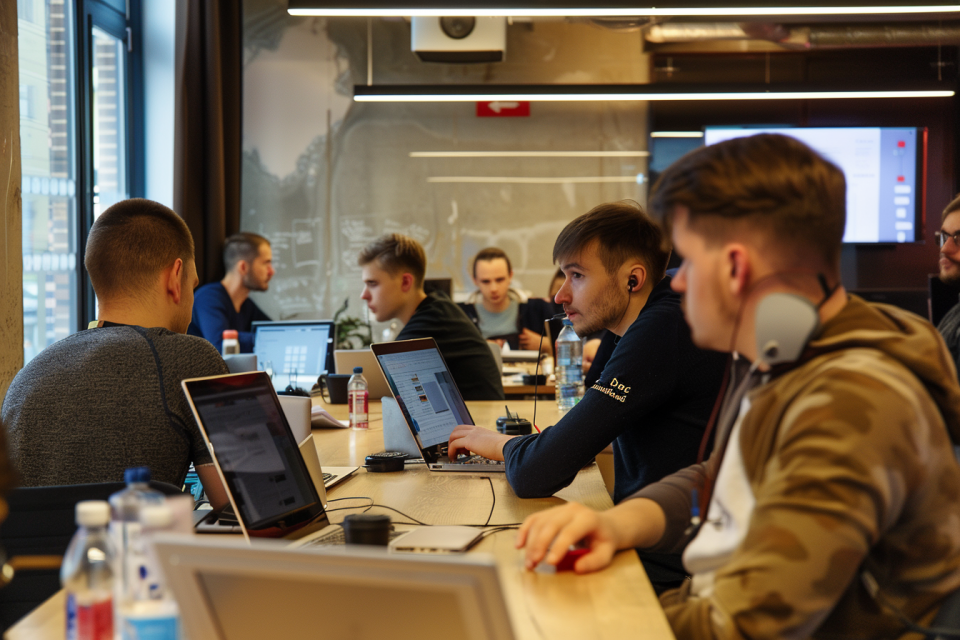Over 1,200 developers got together at the UC Berkeley AI Hackathon 2024 on June 22-23, to create AI solutions with the theme “AI for Good”. The hackathon encouraged participants to focus on projects that promote responsible and ethical AI practices. From healthcare advancements to environmental sustainability, the innovations presented at the event highlighted the far-reaching potential of artificial intelligence.
Rules and Structure of the Contest
The UC Berkeley AI Hackathon was open to undergraduate and postgraduate students, as well as recent graduates, from across the globe. Teams could consist of up to four members, and solo participation was also allowed. Participants had 36 hours to develop their projects from scratch, working intensively to meet the deadline. Projects were judged based on innovation, feasibility, social impact, and adherence to the theme “AI for Good.” The event also featured workshops and panels led by AI experts to guide participants in developing responsible AI solutions.
Team Glowco: Healthcare Innovation
Team Glowco from Chulalongkorn University took home the first prize with their project, the "Painless Home Use Cholesterol Screening Kit." This groundbreaking innovation offers a user-friendly, painless method for monitoring cholesterol levels at home, potentially transforming personal health management. By making health monitoring more accessible and less invasive, Glowco aims to enhance preventive healthcare and improve patient outcomes.
- Impact: Simplifies cholesterol monitoring, promotes proactive health management.
- Prize: $100,000 in funding and a certificate.
Team Workhard REPS: Environmental Sustainability
The second prize was awarded to Team Workhard REPS from Petra Christian College for their project, "Repurposed – Green Bin." This AI-powered smart recycling bin identifies and sorts waste materials, significantly improving recycling efficiency and reducing environmental impact. By addressing the growing challenge of waste management, this innovation supports sustainability and eco-friendly practices.
- Impact: Enhances recycling processes, supports environmental sustainability.
- Prize: $80,000 in funding and a certificate.
Team Surety: Women's Health Solutions
Team Surety from Singapore University of Social Sciences earned the third prize with their project, "Surety Menopause Management." This AI-driven platform provides personalized health recommendations and support for managing menopause symptoms. By focusing on women's health, Surety aims to improve the quality of life for women experiencing menopause through tailored healthcare solutions.
- Impact: Improves menopause management, enhances women's healthcare.
- Prize: $50,000 in funding and a certificate.
Honorable Mention Awards: Innovative and Diverse Solutions
The hackathon also recognized four teams with honorable mention awards, each receiving $10,000 and a certificate for their innovative contributions:
- Team PEER Lab from Hosei University developed “Pineapple Leather,” an eco-friendly alternative to traditional leather, promoting sustainable fashion.
- Team Excel In Stone from Asian Institute of Technology created “Thirsty Concrete,” a novel concrete that absorbs and stores rainwater, helping to manage urban flooding.
- Team UGBN from Bangkok University and other institutions introduced “IoT-ULAP,” an IoT platform for smart urban lighting and pollution monitoring.

Join the Conversation
The UC Berkeley AI Hackathon 2024 was a celebration of innovation, creativity, and the power of collaborative problem-solving. As these projects move forward, they hold the potential to make a significant impact on healthcare, environmental sustainability, and beyond. With continued support from Berkeley SkyDeck and the broader AI community, the future looks bright for these pioneering solutions.
As enterprises increasingly adopt AI technologies, the need for skilled AI developers continues to rise. According to a recent report by Gartner, AI is expected to create 2.3 million jobs by 2025, outpacing the 1.8 million jobs it will eliminate. This underscores the importance of preparing the next generation of AI experts through hands-on experiences like hackathons.
Intersog recently partnered with Deana.AI® to develop a real-time data analyst solution that can be used to improve health outcomes and patient care, reduce risks, and simplify reporting. This new tool allows users to query any data set using natural language, and a generative AI engine will pull factual, helpful insights to help organizations enhance operational efficiency and save time and resources. Such advancements exemplify the transformative potential of AI, driving progress across various industries and contributing to a smarter, more efficient future.
We invite you to join the conversation and discuss these AI innovations. How can we further support and promote AI education and development?






